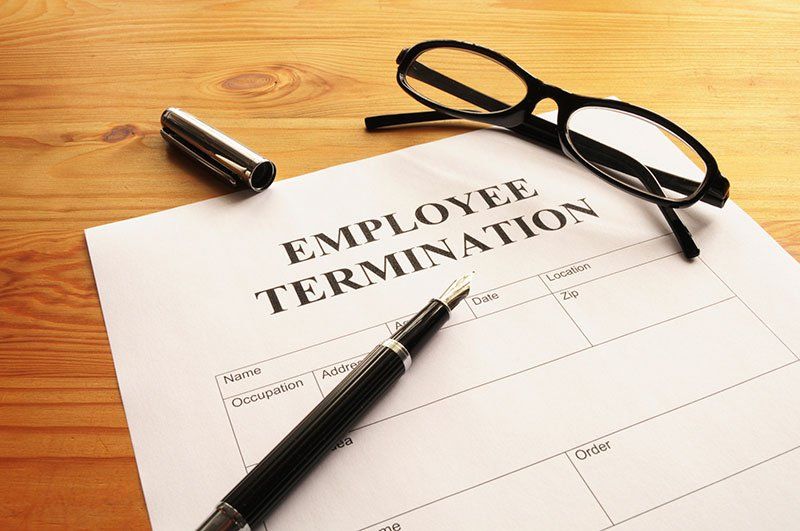Dismissals for Some Other Substantial Reason
Dismissals for Some Other Substantial Reason

Background
As is commonly known, there are five potentially fair reasons for dismissal of which some other substantial reason (SOSR) is one.
These are embodied in section 98 of the Employment Rights Act. When looking at SOSR, s98 specifically states that it is;
“…some other substantial reason of a kind such as to justify the dismissal of an employee holding the position which the employee held.”
What does this mean?
SOSR is sometimes referred to as the “sweep-up” category. However, that’s probably giving it greater scope than the law provides as it’s quite narrow in its application.
Unhelpfully, there is no statutory definition of SOSR; nor any statutory guidance. There are, however, various categories of dismissal that have been developed by case law under this heading.
In this article, we take a closer look at some of those areas. While we highlight the main ones, we must stress that they are all difficult defences to run, and are often part of wider issues, so SOSR is not usually the main line of defence but can still play an important part. For example, if you have lost confidence or trust in an employee, it’s often because of their performance or conduct; the loss of trust is a possible SOSR defence but would probably fail on its own. The defence would be stronger if you relied on the conduct or performance issues that have led to the breakdown in trust.
SOSR test
If an employee claims unfair dismissal, there are two separate stages when considering SOSR as the reason for the dismissal.
Firstly, you have the burden of proof that your specific (SOSR) reason could justify dismissal of the individual. The tribunal will not consider the reasonableness or fairness of the dismissal simply whether the reason could justify dismissal.
Secondly, you need to establish that your decision to dismiss was reasonable in the circumstances. It's often this part of the test where employers fail to successfully defend dismissals for SOSR.
SOSR reasons
The usual examples where SOSR has been argued as follows. They all have a common theme of being there to protect the business:
Business reorganisation
Occasionally, there may be the need to reorganise your business, but the restructure does not result in redundancy. As a result, there may be a need to change certain terms and conditions of employment. Here, SOSR may apply in such a situation where you are seeking to agree new terms of employment. If the employee refuses to accept new terms, then you may be able to dismiss and rely on SOSR, but this will be very fact specific and depend on the circumstances.
Personality clashes
Such situations can amount to SOSR, however, as with most examples of SOSR, there needs to be some significant disruption or threat to your business.
If a clash arises because of different views and beliefs and those beliefs are protected under the Equality Act, any detrimental treatment against someone who is protected would usually treated as disciplinary action against the perpetrator. However, if both conflicting views are protected, claims from both may ensue, especially if both individuals are dismissed.
Breakdown of mutual trust and confidence
Probably the SOSR reason cited the most is this one. However, the Tribunal usually criticises an employer who relies solely on this as its justification for dismissal. This is probably the clearest example of where SOSR overlaps with other reasons and the Tribunal has regularly found that dismissals for this reason are borne out of the employee’s misconduct, so that should be the reason to rely on, not SOSR.
The Tribunal will expect something more to justify dismissal for this reason and is reluctant to allow this to become an easy option for employers to dismiss. If the trust has been broken, then its usually a case of digging deeper to understand why the trust has been broken.
Restrictive covenants
There have been cases where employers have been able to fairly dismiss employees for SOSR where those employees have refused to accept new restrictive covenants that the employer has needed to introduce to protect its business. This was the case even though the covenants were unenforceable.
The employer needs to establish that it is fair to dismiss, which will mean the Tribunal takes a close look at the process followed to seek agreement to the covenants. If this is unfair, then the dismissal is likely to be unfair.
Third party pressure
There have been cases where a customer has insisted on an employee no longer being employed or assigned to work with that customer. Here, the employer needs to consider the size of the client and its business to see if the employee can be moved to another customer or part of the business.
Generally, for this to be a fair reason for dismissal, the customer (or supplier) will need to be a major or the main customer (or supplier) with no alternative to accommodate the employee elsewhere in the business.
Reputational risk
This can be a difficult reason to rely on and there is conflicting authority on the point. Both involved employees accused of sex abuse. In both cases it was unproven, but in one case the employer relied on police information whereas in the other the employer relied on unsubstantiated and unproven historical allegations.
The employer that relied on the Police investigation was found to have fairly dismissed, whereas the second employer was found to have unfairly dismissed, partly owing to its poor procedure and also the lack of credible evidence.
Employed couples
In certain sectors, it could be that a couple are engaged effectively together, so if one is dismissed or resigns, it can be fair for SOSR to dismiss the other. IT would be common for this to happen where the couple are employed on the basis that they work together and share the duties, so they cannot be split if one leaves.
Compulsory retirement
While retirement was the 6th potentially fair reason, this was removed in 2011. There are still some limited categories where a fixed retirement age can be justified and any dismissal of an employee who reaches a set age will be treated as a dismissal for SOSR. Before you consider using this, you would need to very carefully consider whether you can impose compulsory retirement. If you do, it’s likely to be challenged as being discriminatory as well as unfair.
If you cannot impose a compulsory retirement age, then any dismissal, perhaps because performance is falling below the required standard, as ACAS suggests as an example, would be dismissal for capability (performance) not SOSR.
In our view, it’s important to know all possible options that could justify a fair dismissal, so we always consider SOSR when advising clients regarding dismissals.
If any of the issues discussed above are a concern to you, or if you would like specific employment law advice, please contact the writer, Matthew Kilgannon, via mk@kilgannonlaw.co.uk or on 01483 388 901.
6th January 2020. © Kilgannon & Partners LLP

A full time employee that is over 21 will soon be earning nearly £24,000 per annum which could mean that more employees are close to the minimum wage. Having an employee working close to the minimum wage poses risks to businesses. For example, if an employee works any overtime, they may then fall below the minimum wage.

The UK Home Office has expanded its sponsor licence priority services to offer greater flexibility and faster processing for prospective and current sponsors of migrant workers.
Removal of the Pre-Licence Priority Service Cap
Previously, the Home Office limited the number of daily applications for its pre-licence priority service to 30. This daily cap has now been removed. The pre-licence priority service is designed for organisations that have applied for a sponsor licence and seek to bring skilled workers to the UK more swiftly. By paying a £500 fee, applicants can reduce their waiting time from approximately eight weeks to around ten working days.

Kilgannon and Partners are pleased to post that our client, Carmen Chevalier-Firescu, has succeeded in defending an appeal from HSBC about the strike out of her claim in the Court of Appeal. Carmen’s claim was initially struck out by the East London Employment Tribunal. One of the reasons given was that it was not just and equitable to extend time. The Employment Appeal Tribunal decided that this needed to be revisited by the Tribunal. This led to HSBC appealing to the Court of Appeal to try and reinstate the original decision.








